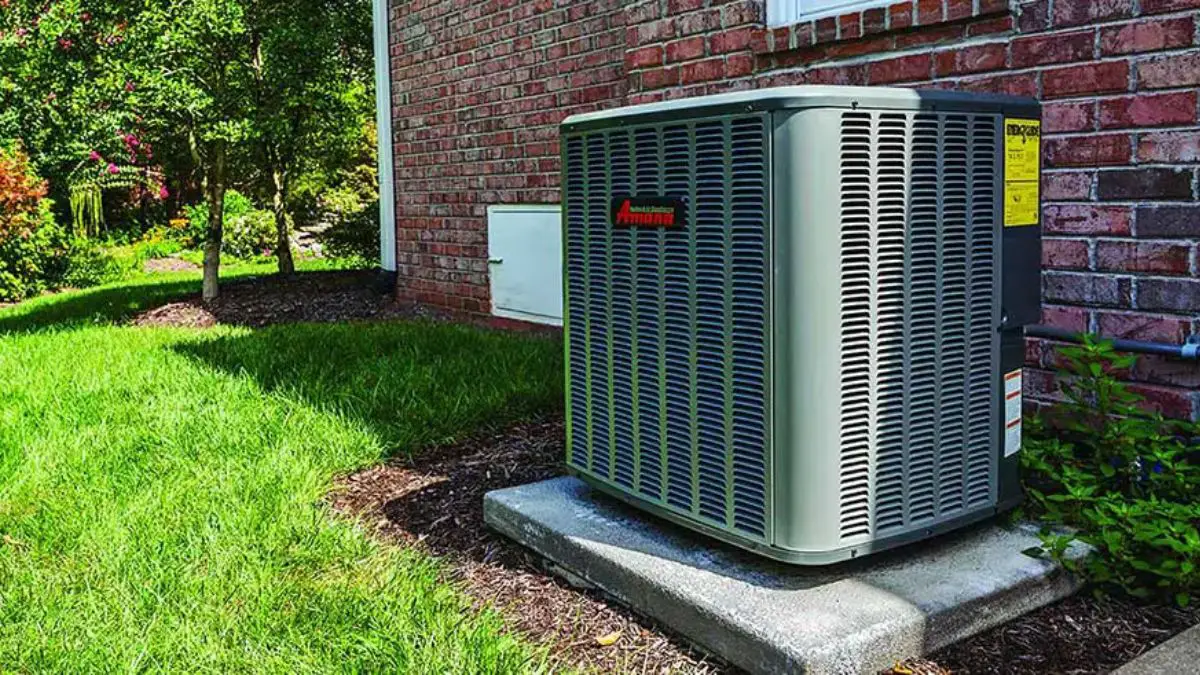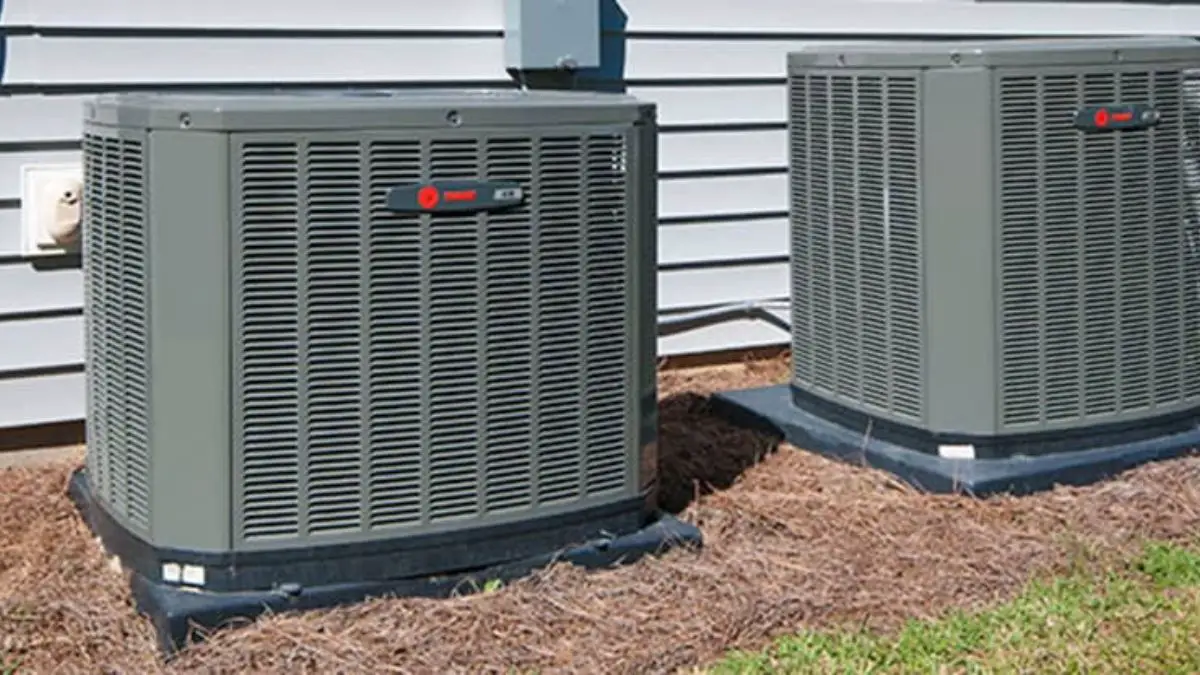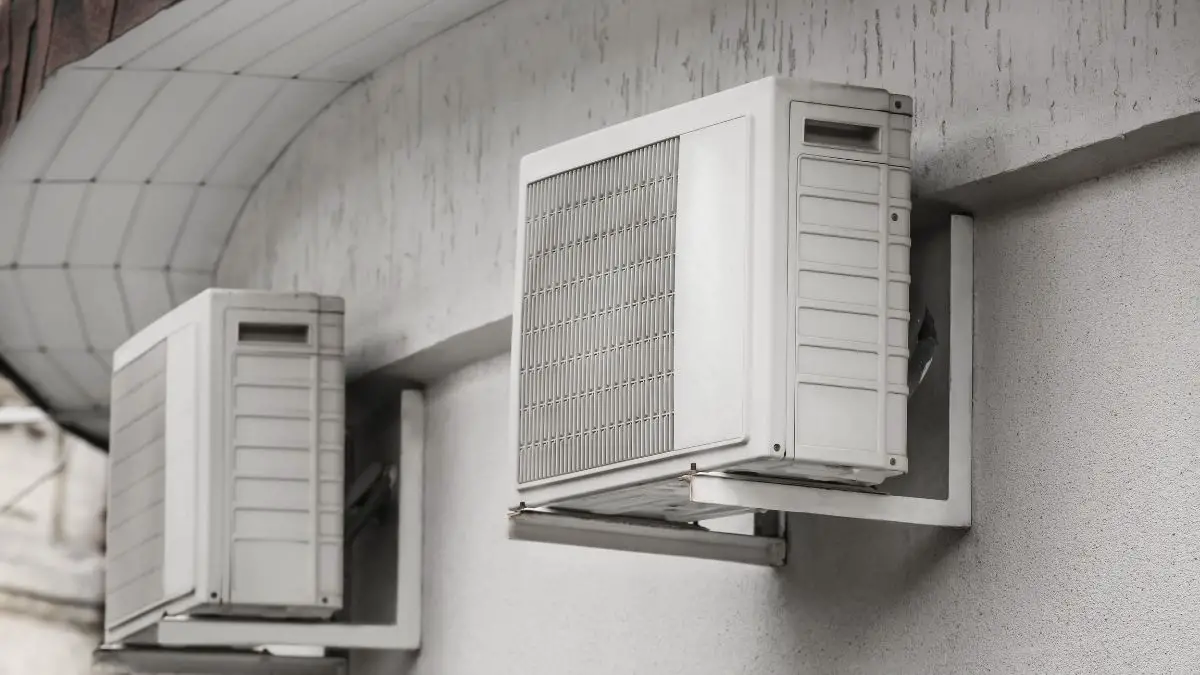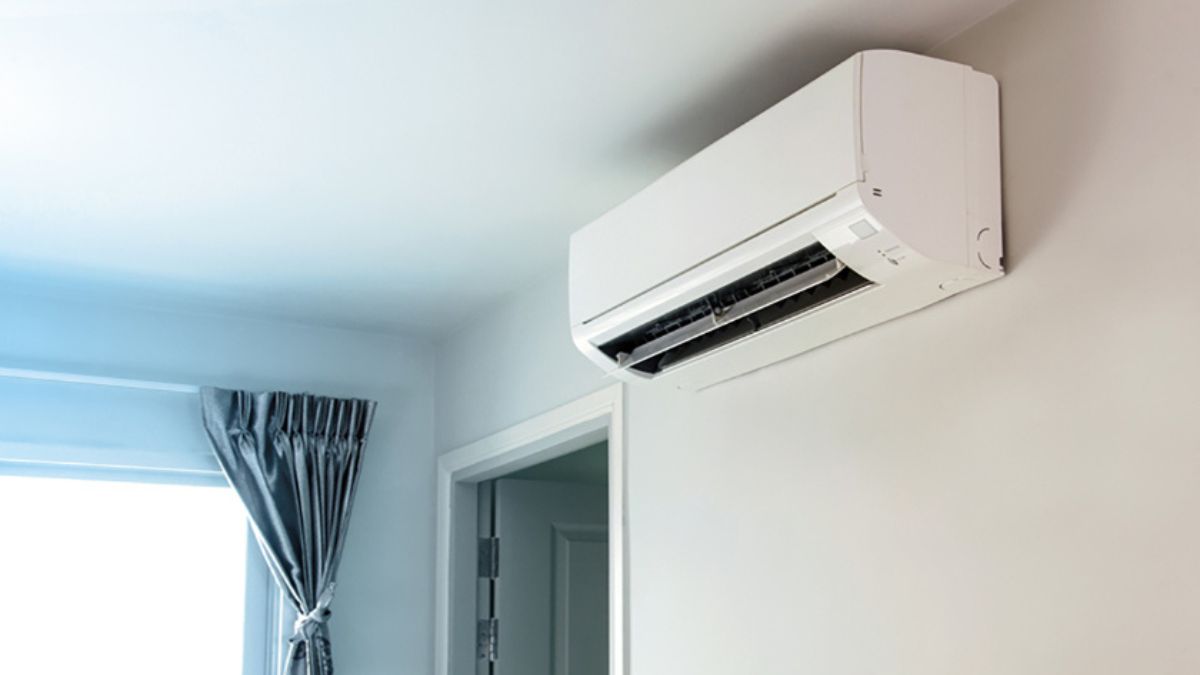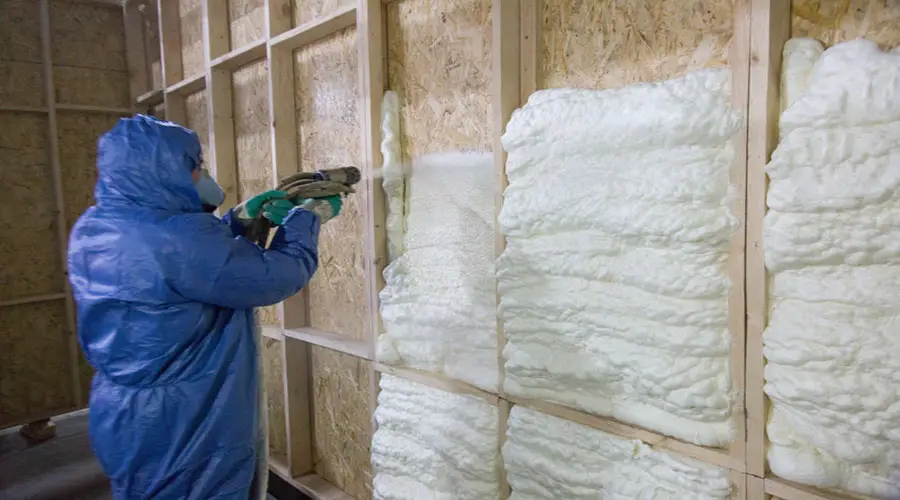
Spray foam insulation is an ingenious service that makes your home comfortable. It lowers your energy bills and reduces your HVAC’s workload. But what happens when spray foam insulation fails, and you end up in a house oozing horrible odor? Unfortunately, such stinky tales are not unusual.
Spray foam insulation that is not mixed correctly can release a “fishy” smell that can stink up your home. The smell can be dangerous and cause health problems. Foul odor from a failed spray foam insulation job is primarily because of contractor errors. These are the reasons why you have a terrible smell after spray foam insulation.
- Improper ventilation
- The spray foam doesn’t off-gas properly
- Wrong chemical mixing
- Bad application by the insulation professional
- Incorrect thickness
Want to get that awful smell from spreading in your house in no time? Here’s how you can do it.
Does Spray Foam Stink?
Spray foam stinks and it is not uncommon for spray foam to let off an unusual smell. Because of its chemical makeup, the combination of ingredients and the catalyst makes it smell. The smells vary. It’s no different than what you get when you buy new chemical products.
The only difference between a typical spray foam smell and a nasty spray foam smell is the duration. Typical spray foam insulation smell will eventually air out. However, it becomes a problem when the smell lasts longer than usual and begins affecting your comfort or health.
Spray foam has different smells. Most times, the house will smell like petroleum-based chemicals. This may be temporary. The more problematic smells are those that smell like ammonia and decay.
Why Does Spray Foam Stink?
Spray foam insulation takes skill. So, it’s safe to say that most insulation jobs go well. However, the lousy spray foam insulation jobs have lasting effects that have cost victims more than just repair costs.
Bad odor from a spray foam insulation gone wrong can make you move houses or even give you health complications. The following are some reasons why spray foam stinks.
Bad Chemicals
One of the biggest mistakes that makes spray foam stink right off that nozzle is bad chemicals.
Spray foam is made from isocyanate and polyol resin. These two chemicals produce a reactive exothermic product that expands on contact with the surface (substrate).
Because of their highly reactive nature, these chemicals need specific temperature and ratio conditions to make a stable product for a good insulation application. The blowing agent your contactor uses matters. Since most mixing happens on-site, the contractor has to know what blends the spray foam manufacturer used.
If the contractor gets the wrong ratio, you end up with an unbalanced product. The stink might not register immediately. You might smell the stench after the insulation since it takes a while before off-gassing completely.
Checking the contractor’s prior experience can help you avoid the stink problem. At least when it comes to on-site foam mixing.
Improper Ventilation
The reaction between the two active chemicals in spray foam produces amine gas. The gas needs proper ventilation outlets so it can dissipate as fast as its being produced. The first step to adequate ventilation is usually an open window. The open window allows fresh air to come in. The contractor also has an outlet vent where the smelly gas passes.
If the area is not well ventilated, the smell is locked into the underlying foam. Eventually, the smell spreads into the wood structure and slowly towards the rest of the home. Since it is so dense, the odor settles in most of the foam. The only solution, in this case, would be the complete removal of the offending foam.
Haphazard Spraying Technique
Experienced insulators know how to time the sprays. They spray layers on top of the last one at precise intervals. That way, they give each spray enough time to cool down the heat. When a contractor sprays the foam without letting the last layer set correctly, they trap heat in the previous layer. This heat might stay put for longer than usual, making it impossible to get rid of the bad smell.
Open-cell spray foam, especially, expands and fills spaces fast. Any professional worth their salt knows how to let the foam off-gas and apply the next layer. It is always a good idea to familiarize yourself with the basics of spraying so you can know whether your insulation professional is doing the right job.
Mold
Mold grows in damp places that don’t get enough air circulation. In rare cases where spray foam insulation hides water stagnation in tight spaces, you might notice an ammonia smell. Black mold, one of the worst forms of mold, is notorious for thriving in hidden areas.
Let’s say your roof leaks at the time of insulation in a space like an attic. You’ll notice a stink after the cold season where the snow gets into the roof. You can also notice it after a rainy season. As the spray foam hides more water damage, mold thrives underneath. You will not notice until the damage is too advanced.
The best thing about such an incidence is its rarity. If a professional contractor knows his trade, you will be lucky enough not to have such encounters.
How Long Does It Take For Spray Foam To Stop Smelling?
Spray foam doesn’t cure immediately. Even in a well-ventilated space, you need to allow the spray foam to cure between 24 and 72 hours. Once the time elapses, there’s a big chance the chemical smell will have dissipated, too.
However, in extreme cases where insulation has gone awry, it will take more than 72 hours for the smell to go away. Uncured spray foam might stink up your space for months. In worse cases, it can go for months still stinking up a home, post-insulation.
Three factors will determine how long the insulation smell lasts in the house.
- The Weather
Hot days are a great indicator of if your home still has that horrendous insulation odor. Heat expands air. Therefore, air moves in between the spaces in the insulation and fills the roof. Unfortunately, you will experience a worse version of it during summer if you had a slight stink because of bad insulation.
- The Area Of The House
The spray foam smell can longer if it is more concentrated in these areas.
How long the spray foam stench stays in a home depends on that area’s air settings and ventilation. Garages, basements, and attics are mostly not the best-ventilated places. In hotter climate areas, they are some of the hottest areas of the house.
- The Material Used
Each spray foam manufacturer uses its proprietary blend of chemicals. They also use different catalysts. While the on-site mixing depends on the prowess of the insulation professional, the combination plays a crucial role in the smell and intensity of the smell. You can ask your contractor to use a blend that doesn’t have a harsh smell.
What Are The Dangers Of Spray Foam Insulation?
Spray foam insulation is mainly considered safe. One of the most significant factors to consider when evaluating the dangers of spray foam insulation is the curing time. Curing time is when the contractors spray the insulation on the substrate and when the foam releases the reactive gases.
Some of the dangers include:
- Respiratory issues from long term exposure
- Higher energy costs from the wrong application
- Possible evacuation from the house from bad smells
- Likely unnoticed mold and mildew
- Home damage from wood rot
Skillful chemical mixing and proper application can help avoid most of the dangers associated with spray foam insulation.
Respiratory Issues
A paper published by the Laborers Health and Safety Fund of North America found that spray Foam insulation contained chemicals that cause skin and lung sensitivity. It reported that the same chemicals played a role in skin and eye irritation issues to workers exposed to the chemicals.
These chemicals led to deeper problems with the respiratory system, such as asthma. This is in cases where the affected people did not have underlying asthma. The offending chemical in all the cases was found to be isocyanates, a key ingredient in the manufacture of spray foam insulation.
Higher Energy Costs From The Wrong Application
Good spray foam insulation can drastically reduce your energy costs. However, the opposite is also true. Bad insulation leaves room for leaks and heat retention. Leaks during the cold season and heat retention during hot weather will overwork your air conditioning systems and drive up your energy costs.
Possible Evacuation From The House From Bad Smells
You are one bad spray foam insulation job from being kept away from your home because of bad smells. Some cases of foul odor from SPF insulation have led to the homeowners considering moving completely from their property. They have had to set up separate living space arrangements just to save themselves from the horrors of bad insulation jobs.
It’s worse when the job is so bad that the solution is a complete takedown of all the insulation.
Possible Unnoticed Mold And Mildew
Humid surfaces harbor mold. Crawl spaces, basements, and bathrooms are prime areas for mold growth. Coincidentally, these spaces are also some of the top spots to install spray form insulation. When your contractor does a shoddy job, oxygen and stagnant water combine in the background to provide an excellent environment for mold.
Mold and mildew may not be dangerous. However, if it is left unchecked, you can get black mold. Other forms of mold — the green, orange, and brown forms — tend to have a musty smell. Black mold can cause allergies that lead to worse respiratory ailments later.
Some mildew forms also produce mycotoxins that lead to allergies or worsen asthma symptoms.
Home Damage From Wood Rot
Wood rot is common in spray foam insulation that used closed-cell spray foam. Closed-cell insulation has a high R-value of over six since it is tightly bonded. However, it has less breathability. If the wood underneath the insulation came into contact with water, it would be hard for the water to evaporate.
Places such as basements, attics, and roof joists have wood rot that goes for long periods without being noticed. When the decay eats away at the wood, and it’s no longer enough to hold up, you might see bends or breakage.
Roof damage becomes expensive to replace when it happens, especially when you consider you have to remove the insulation too.
Is Spray Foam Insulation Safe For Homeowners?
Even with all the potential pitfalls of spray foam insulation, it is safe for homeowners. Spray foam insulation has come a long way since it was first commercially used for residential homes. Now we have people trained to insulate your home while observing the strictest health and safety standards.
Companies are using safer materials to make sure any possible damage can be handled fast.
However, if you are in doubt, don’t be afraid to ask these questions.
- What brand of spray foam are you using?
- How long have you been insulating homes using spray foam?
- What equipment are you using?
- What’s your policy on lasting bad odor if the insulation doesn’t go well?
Where Should You Not Use Spray Foam Insulation?
Some places are too high-risk for spray foam insulation. It might be entire spaces. Instead, it’s just small sections of the home where there is a considerable risk of things going wrong. Do not use spray foam insulation in the following areas.
- Too close to electrical fixtures
- Near windows and doors
- The top of ceiling lightboxes
Electrical boxes are sensitive spots when it comes to spray foam insulation. First, it covers up the wiring. You might need full access to the electrical wiring of the house if there is ever an emergency. Even if you had your wiring in check and can access it, you do not want to risk the spray expanding into any outlets. You can jam the parts.
Additionally, spraying too close to electrical fixtures increases the risk of a fire. Spray foam has flammable chemicals that will ignite if an electrical fixture has a fault. It might lead to a fire.
Spray foam is used to seal doors and windows. However, you need the least expanding form of spray foam to do a clean job. Closed-cell spray foam is preferable in such cases.
Fast-expanding foam can block the main vertical part of the window when it pushes the jamb inward. Fortunately, there is spray foam indicated to be safe to use on windows and doors.
Ceiling canister lights typically have heat around them. It would be risky to have spray foam too close to these lights. Spray foam would retain the heat from the lights and pose a fire risk if temperatures were too high.
How To Get Rid Of Spray Foam Smell
Check The Ducts
Faulty HVAC systems in the attic could be taking in smelly air and redirecting it throughout the house. In this case, you should seal the ducts to prevent further spread of the offending fumes.
Custom Ventilation
Try these custom solutions if the home’s current ventilation isn’t doing enough to disperse the bad odor. You’ll need a home inspector to assess the air volume and the best custom ventilation strategy.
Install a solar attic fan to depressurize the attic air. It’ll pull fresh air from the house, into the attic, and out of the house.
Seal any gaps between the attic and living spaces. Also, seal any openings between the garage and basement, and living area. This might affect humidity. Therefore, you will need a dehumidifier.
Install New Air Filters
An air filter that uses activated carbon can help control the odor of a bad insulation job.
What Should You Do If Spray Foam Stinks?
Here are some actions to consider if the foul odor from spray foam insulation persists.
The first step is to check whether you have medical issues due to the smell. If you are, get immediate medical attention.
- Work with the contractor to identify the cause of the stench and recommend a mitigation strategy.
- If the foam is the problem, consult with the contractor to get in touch with the manufacturer.
- If any attempts to solve the problem with the contractor and manufacturer fail, contact your local or state consumer protection office or contractors’ licensing board.
Final Thoughts
The key to a successful spray foam insulation in your home is a licensed professional spray foam contractor. Make sure you get the right contractor with proper protective equipment. They should have a clean track record of their work and have a contingency plan if there are any stinkers after the job.
Sources
How We Remedy Spray Foam Odor For Homeowners
How to Get Rid of Closed Cell Spray Foam Smell


